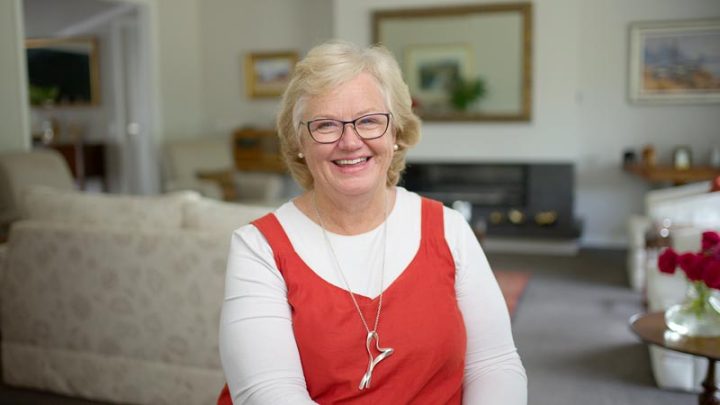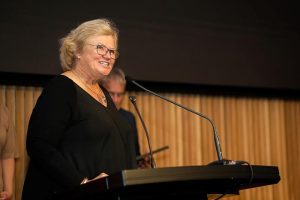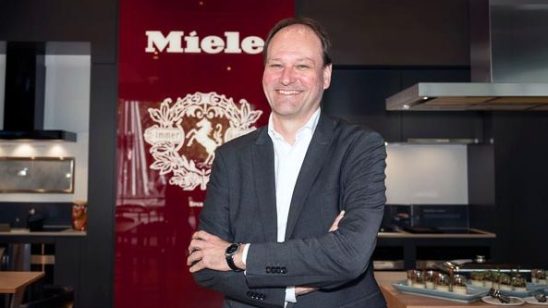
Caring and sharing: Kate Reid
A huge field, palliative care is at the forefront of Kate Reid’s working career. She talks to Metropol writer Céline Gibson about how, and why.
One of Kate Reid’s favourite pleasure pursuits is classic motoring in her MG sportscar. She can be seen, kitted out in helmet and overalls, completing laps around a race track, a huge contrast to her day job lecturing at the University of Canterbury (UC).
Kate’s story starts years ago, with a change of mind about her career options. “I was boarding at Christchurch Girls’ High School and was thinking of becoming a physiotherapist. Quite a few in my class were opting to become nurses, so I decided to investigate nursing as well.”
After completing her three years training, Kate worked as a junior staff nurse in Christchurch Hospital’s Oncology ward. “I often asked whether we were doing a good enough job for those people who were not going to survive their cancer. In those days it was a lot (not so today). I didn’t know the answer. The ward sister and three of the oncologists told me I needed to go away and come back when I had the answer.”
They supported Kate to go to the Royal Marsden Hospital in London, a hospital solely dedicated to cancer. It was here that she discovered the hospice concept of care and what was known as the Hospice Movement. Returning to New Zealand at the beginning of the hospice movement here proved fortunate. “Internationally, and in New Zealand, was largely being run by religious orders. “Mary Potter Hospice in Wellington and Auckland’s St Joseph’s Hospice were quietly getting on with the job, but it wasn’t formally known.” In 1984 Kate was contacted by the Matron and Medical Superintendent of Burwood Hospital, where the austere former Male Nurses Hostel was operating as a hospice. “The Cancer Society put money into carpeting, and rotary clubs rolled up their sleeves with paintbrushes and wallpaper.
Something unique was happening there that families appreciated, a home away from home feel,” Kate recalls. As the hospice movement started to grow, so too did the need to protect what it did. “We needed a national body. The Cancer Society, nationally, stepped up, contributing funding and its Wellington office space for Hospice New Zealand to set up its base.”
All went well until health reforms resulted in the closure of the Burwood hospice. The Nurse Maude Association took on the contract to continue hospice/palliative care in the community, although without the education component. “Because I’d served in the national role of Hospice New Zealand, I could see what other training was going on,” says Kate. “I felt it was a way to streamline that opportunity.” With strong support from Victoria University in Wellington, a sub-education group of Hospice New Zealand was formed. “We worked on education, and were initially supported through post-graduate study at Victoria University, and then also through Whitireia Polytechnic in Porirua.”
In 2007, Kate began her palliative care lecturing role at UC, a full-time role she continues to this day. Her students are predominantly nurses, but also encompass physios, doctors, social workers, occupational therapists, counsellors, and chaplains. “That more interprofessional way of learning is therapeutic on a number of levels. It gives permission to toss ideas around and see where they land, and the initiatives they come up with for improving practices in their services are fabulous.”

Outside of UC, Kate sits on a number of boards, such as the Cancer Society, which she joined in 1987, and has chaired since 2012. Kate also chairs the Akaroa Trust board, is on the board of Akaroa Health, and the board of Governance New Zealand. Tūwhana, a recently established Business Events Advocate Programme that brings together influential thought leaders from multiple sectors to promote Christchurch as an international business destination, is another organisation Kate contributes her expertise to.
Her wish for palliative care in 2024, is for end-of-life care to return to the community.
“Caring for the dying is not a medical event; it is a societal event, with a small amount of medical intervention. The majority of caring for the dying happens outside of institutions,” she explains.
“When I look at how palliative care came about, it was because we deserted the dying. When I became involved in the hospice movement, the government at the time decreed that every New Zealander had the right to a good birth and a good death.”
Kate lauds the huge advances made in medicine, but feels that those diagnosed with a life-threatening or life-challenging condition are viewed as being “a bit awkward, because it is that end of the spectrum. We’ve left this group behind and I think we’re letting people down.”
Kate says the palliative care movement believes that people have the right to a good quality of life, despite a life-challenging or life-limiting diagnosis. “My need is to put palliative care back into the hands of the community, back into families where it belongs, and not make a speciality out of it. Dying is a normal, natural part of life. As a human being, it is innate in us to care for another person, but we think it ought to be professionalised, for some reason, and it doesn’t always need to be.”
Kate brings the interview to a close with a beautiful reflection for those experiencing the grieving process: “Grief is the price you pay for loving someone – it is the cost of love.”




